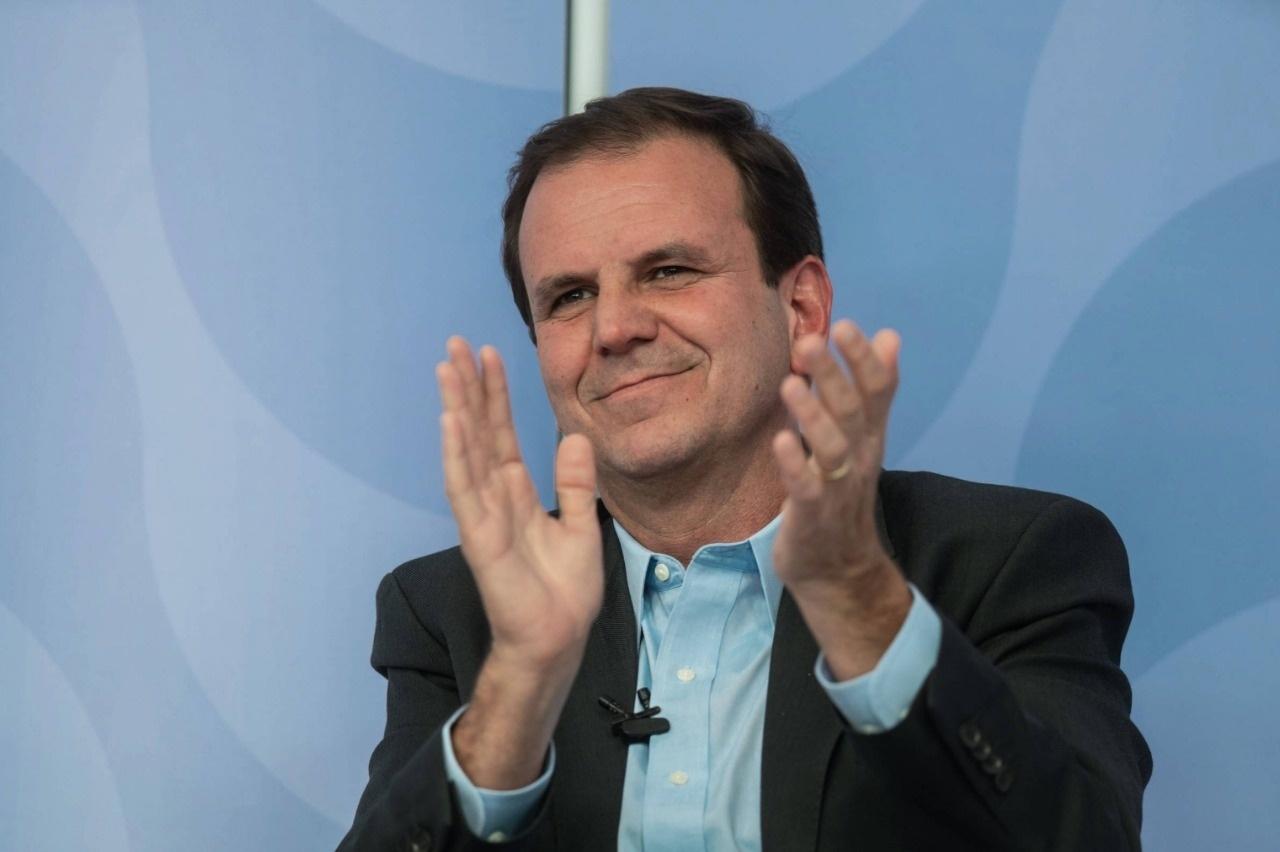RIO DE JANEIRO, BRAZIL – Ex-mayor Eduardo Paes (DEM – Democratas) has widened his lead in the race for Rio de Janeiro’s City Hall four days before the election, while current Mayor Marcelo Crivella (Republicanos) and state deputy Martha Rocha (PDT – Democratic Labor Party) remain technically tied in the race for a spot in the second round, Datafolha points out.
The DEM candidate holds 34 percent of voting intentions. He is the first among the main candidates to record an increase over the error margin since the first poll, released on October 8th, when he had 30 percent. He reached 28 percent on October 22nd and has climbed by six percentage points since then.

Crivella emerges with 14 percent of voting intentions, against 11 percent for Martha. The two fluctuated negatively within the error margin, compared to the preceding poll result. The current mayor held 15 percent and the deputy 13 percent of the vote.
Datafolha heard 1,148 voters in person on November 9th and 10th. The poll, in partnership with TV Globo, has an error margin of three percentage points, plus or minus.
The poll shows that Crivella’s candidacy has yet to reap the fruits of Jair Bolsonaro’s official endorsement. The mayor has been using a video recorded by the President in his TV campaign advertisement but has not significantly expanded his voter base, Datafolha points out.
Martha Rocha has not suffered any direct effects on voting intentions even after becoming the preferred target of her two main opponents. However, she lost her lead over Paes in the second round simulation and rejection of her name remains on an upward trend.
Federal deputy Benedita da Silva (PT – Workers’ Party) holds eight percent of the vote, the same as in the last poll. She is technically tied with the PDT candidate and, at the limit of the error margin, with the mayor – in this case, a tie is considered unlikely.
In a third group are Luiz Lima (PSL – Social Liberal Party) with five percent, Renata Souza (PSOL – Socialism and Liberty Party) with four percent, Bandeira de Mello (Rede – Sustainability Network) and Paulo Messina (MDB – Brazilian Democratic Movement), both with two percent.
All other candidates received one percent or less of voting intentions. A total of 14 percent declared that they intend to vote blank or null. Another three percent said they were unsure.

In computing valid votes, which disregards the blank, null and undecided, Paes holds 41 percent of voting intentions, Crivella holds 17 percent, Martha holds 14 percent and Benedita holds ten percent. The election ends in the first round if the most voted candidate exceeds 50 percent of valid votes.
Crivella showed an increase in his rejection rate, rising from 57 to 62 percent. Subsequently, the most rejected candidates are Paes (31 percent), Clarissa Garotinho (26 percent), and Benedita (24 percent). Martha shows a 14 percent rejection rate, and all others, 13 percentage points or less.
In the second round simulations, Paes is ahead in all scenarios. He widened his lead over Martha, registering 46 against 35 percent for the PDT candidate. Confronting Crivella, he emerges with 58 percent, and the current mayor with 22 percent. In the scenario against Benedita, Paes registers 50 percent compared to 27 percent for the PT candidate.
In the spontaneous poll, where respondents express their voting intentions without being presented with names to choose from, 25 percent said they intend to vote for Paes – two weeks ago it was 22 percent -, ten percent for Crivella – against 11 percent in the preceding poll, eight percent for Martha – the same percentage as in the last poll – and five percent for Benedita. Almost one-third of voters (29 percent) did not spontaneously express their voting intentions for any candidate.
The poll also provides pointers on the potentials and limits of the main candidates’ final week strategies.
Paes has been focusing his street campaign on the West Zone in order to attract potential Crivella voters, as his administration is poorly rated. The ex-mayor stands as the second voting option for 33 percent compared to the current mayor, ahead of Martha (24 percent) and Benedita (two percent).
Crivella has been trying to attract voters who approve Bolsonaro’s administration. He currently holds 33 percent of this group, above Paes and Martha, with 25 percent and nine percent, respectively.
In turn, Martha has been trying to attract Paes’ constituents. The campaign assesses that the ex-mayor has been chosen by voters due to rejection of Crivella, in a kind of anticipation of the so-called “useful” vote.
The PDT candidate has used as her campaign motto “there is life after Eduardo Paes”, to introduce herself as a viable candidate in the race. Martha holds the second place for 24 percent of Paes’ voters, against 13 percent for Crivella and 15 percent for Benedita.
The PDT candidate also started to bet on a useful vote from left-wing voters, with the support of performers linked to this camp, such as singer Caetano Veloso. However, she does not lead in the second vote over Benedita, being the option of 29 percent of the PT candidate’s electorate, a level similar to Paes’ (34 percent).
The confidence level of the vote for the four top candidates is similar. Among Crivella’s voters, 70 percent say they are fully determined. The same level includes respondents who chose Paes (69 percent), Martha (64 percent), and Benedita (65 percent).
Source: Folha de S.Paulo

